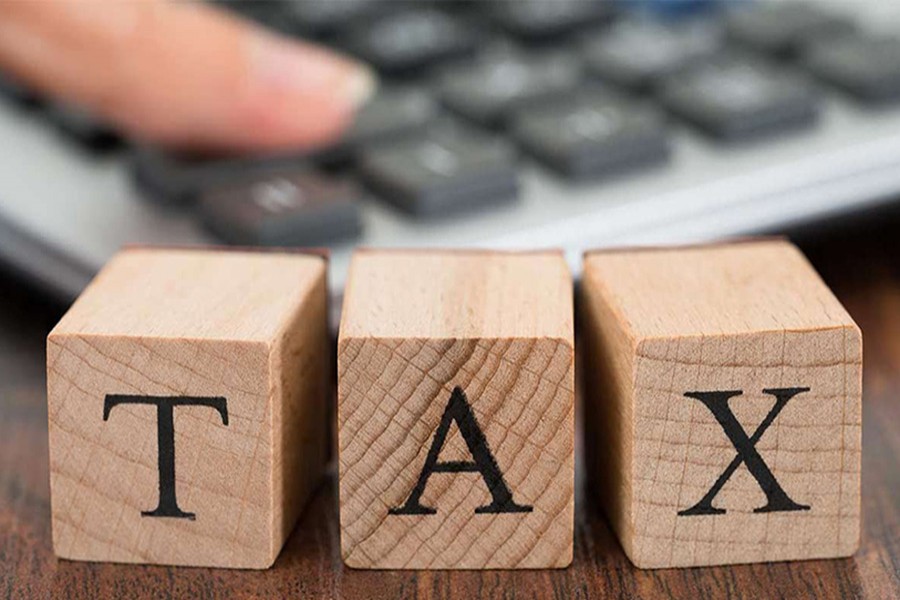Big entrepreneurs shy away from reinvesting their profit in new ventures or limiting necessary expansions in fear of huge monetary losses under Bangladesh's 'complex' multilayered dividend-taxation system.
Such a revelation came from sources in business circles who also said the anxiety over tax issues stymies the flourishing of local companies, so also employment generation for umpteen jobseekers, including higher-educated ones.
Businesspeople are depressed about the consequences of rolling out their reinvestment or business-expansion plans, they said.
Industry-insiders said under the existing Income Tax Ordinance promulgated way back in 1984 a company must pay 20 per cent tax on its dividend earnings.
If any company is a multitier one, meaning it holds the industrial undertaking through a set of subsidiaries owned by it, it has to pay tax at 20 per cent every time one subsidiary pays dividends to another under the existing law.
Thus, dividends are taxed in the hands of the shareholders multiple times before reaching the ultimate investor, said a local company owner, requesting anonymity.
To clarify further, he said that in a situation where an industrial undertaking is held by a holding company through two or more levels of subsidiaries, it will have to deduct Tk 20 as taxes on 100 taka worth of dividend it pays to its shareholder. This shareholder, being another corporate entity, has to deduct another 20 per cent from Tk 80 it receives before it pays dividend to its shareholder and pay an amount of Tk 64 only to its owners.
Finally, government would receive Tk 36 out of Tk 100 distributed as profit.
Leaders of Bangladesh Association of Publicly Listed Companies (BAPLC) recently met with Finance Minister AMA Muhith for resolving the issue to open up a wider scope for making investment by locally owned companies in the country.
Bangladesh Independent Power Producers Association (BIPPA) also wrote to the National Board of Revenue (NBR) for finding a remedy.
Talking to the FE, BAPLC President Azam J Chowdhury said the existing multilayer-taxation system on dividend is impacting reinvestment by locally owned companies badly.
"It is 'unjustified' and not at all 'acceptable,'" said Mr Chowdhury, also managing director of MJL Bangladesh Ltd, a listed company on country's stock exchanges.
"We shall also talk the issue with the National Board of Revenue (NBR) soon to resolve it," said Mr Chowdhury.
And BIPPA secretary-general Abdul Halim said his association in a recent letter to the NBR also sought to avoid multiple-taxation travails as private-sector- power-generating companies are entitled to enjoy a tax holiday for 15 years under the Private Sector Power Generation Policy (PSPGP) of Bangladesh.
The subsidiary power-generating companies of a parent power company should also be exempted from dividend-distribution tax, he argued.
Sources familiar with the tax issues, however, said the existing multilayer dividend-taxation system is not applicable to all cases as the NBR issues specific orders in the form of statutory regulatory order (SRO) allowing tax waiver on dividend earnings.
The NBR through SROs dated August 1, 2013 and October 11, 2015 waived the tax on dividend earnings of the 1320-megawatt (MW) Rampal Power Plant and companies in the High Tech Park for 10 years.
Single-tier taxation system is, however, in use in many countries across the globe, said sources.
In Malaysia, considered one of the fast-developed countries over the past years, single-tier taxation came into force on January 1, 2008.
Dividends received by a domestic or resident foreign corporation from another local corporation are not subject to tax, the Philippines provision spells out.
Contacted for comment on the taxation dilemmas, President of the Federation of Bangladesh Chambers of Commerce and Industry (FBCCI) Md Shafiul Islam (Mohiuddin) also sought a simpler and affordable tax policy in the interest of the country's overall economy.
A business-friendly tax policy would facilitate more employment although it could reduce tax, he told the FE.
Tax rebate could woo investors into injecting fresh investments, which in turn would accelerate the country's overall growth, said the top brass of the apex chamber.
Mr Mohiuddin also pointed out a recent US policy wherein their government knocked down the taxes on industries to help local entrepreneurs flourish.
"Our government can also follow suit," said the businessman in his suggestion for tax reforms suiting present-day trends in the outer world.
"We shall have to examine their proposals before taking decision on repealing or amending the existing policy," NBR Member (Tax Policy) Kanon Kumar Roy told the FE when asked about the status of the proposals of the BAPLC and BIPPA.


